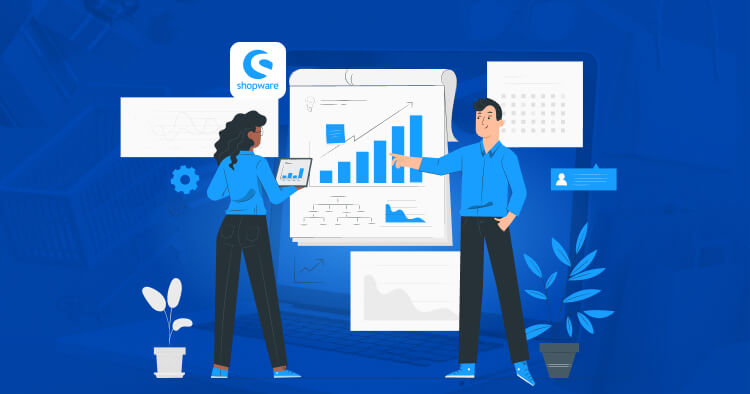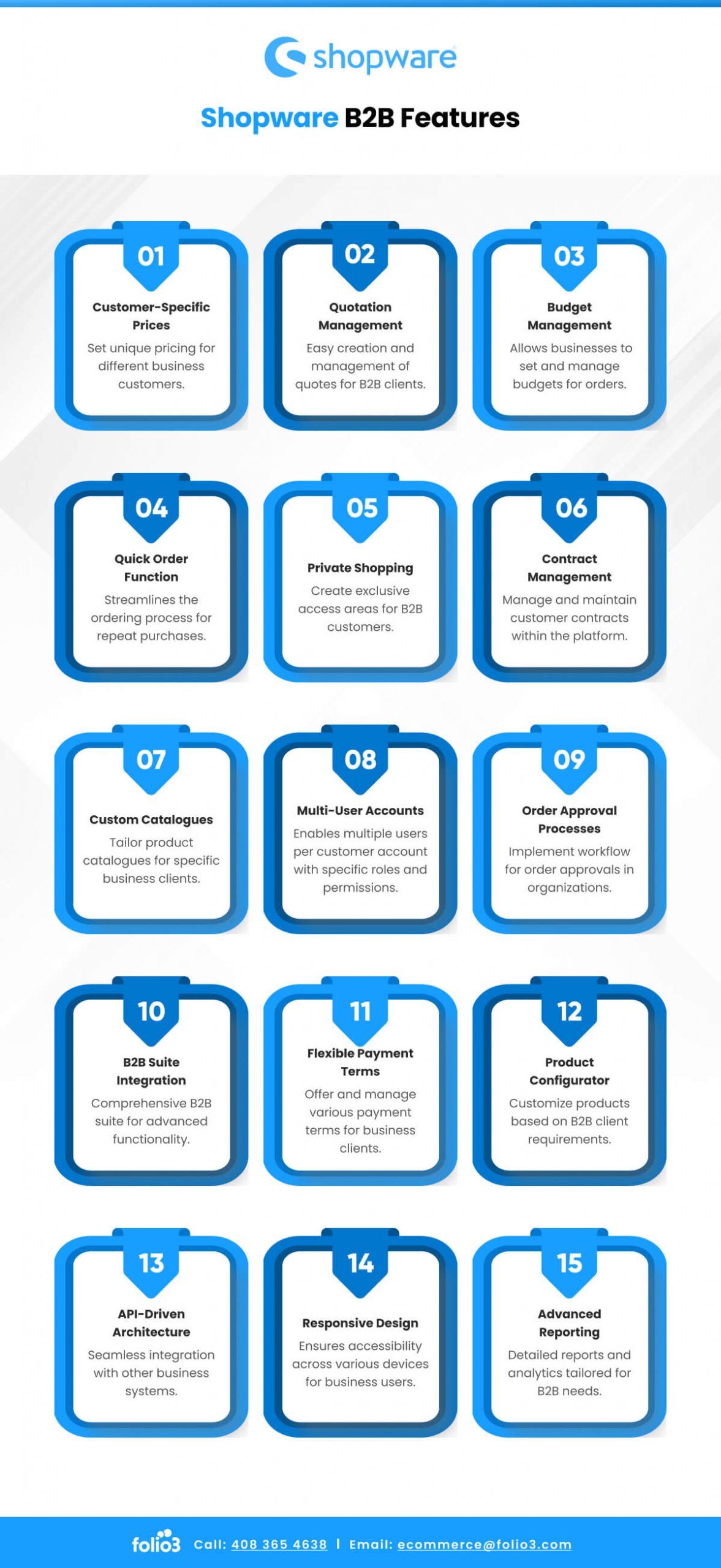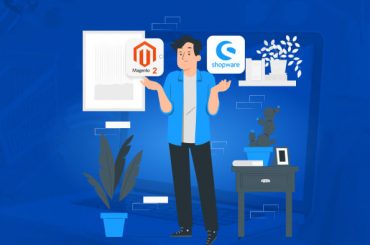Shopware B2B: How To Start Your B2B Business With Shopware
Last Updated | December 7, 2023
Table of Contents
When initiating a B2B (Business-to-Business) operation, choosing the right e-commerce platform is pivotal. Shopware, widely celebrated for its versatility and robust features, is an exemplary choice for entrepreneurs eager to dive into the B2B sector with Shopware B2B. But how exactly can you kickstart your venture with it? Let’s unravel the steps together.
Step 1: Understand Your Business Needs
In the B2B space, understanding your unique business requirements is crucial. Consider aspects like product complexity, customer groupings, and pricing models. Shopware, with its customizable solutions, can cater to diverse B2B needs, offering tailor-made solutions.
Step 2: Choose the Right Shopware Edition
Shopware provides various editions – Community, Professional, and Enterprise. The Professional and Enterprise editions are particularly adept for B2B e-commerce due to their advanced features and extensive support. Evaluate each edition in light of your budget and requirements.
Step 3: Design a User-Friendly Storefront
The key to retaining clientele is an intuitive and user-friendly storefront. Use Shopware’s advanced design capabilities to create a visually appealing, easy-to-navigate store. Ensure your website reflects your brand ethos while keeping B2B client ease and accessibility in mind.
Step 4: Leverage B2B Suite
Shopware’s B2B Suite is a powerhouse of tools designed for wholesale traders and manufacturers. It simplifies complex B2B processes, providing functionalities like rights and roles management, quick order, and contract management. Exploit these features to streamline your B2B operations.
Step 5: Implement B2B Pricing Models
Shopware allows you to implement various pricing models, facilitating price negotiations and bulk ordering with ease. Design distinct pricing strategies for different customer groups and provide them with custom quotes, striking a balance between competitiveness and profitability.
Step 6: Utilize Robust API Capabilities
Shopware’s robust API (Application Programming Interface) allows seamless integration with various third-party applications and ERPs, enhancing the functionality of your online store. Ensure your B2B operations are automated and synchronized by integrating essential tools.
Step 7: Focus on Marketing and SEO
A well-structured SEO and marketing strategy is indispensable for driving traffic and converting leads. Utilize Shopware’s SEO tools and integrate marketing strategies, like content marketing and email campaigns, to foster brand visibility and customer engagement.
Step 8: Ensure Mobile Responsiveness
In an era of mobile commerce, ensure your Shopware store is mobile-friendly. A responsive design not only enhances user experience but also boosts your SEO rankings, connecting with clients wherever they are.
Step 9: Establish a Strong Support System
After-sales support is vital in B2B e-commerce. Implement efficient customer service and create detailed FAQs and guides, utilizing Shopware’s service functionalities to assist clients in their post-purchase journey.
Step 10: Analyze and Optimize
Use Shopware’s analytic tools to track your store’s performance. Gather insights, analyze data, and perpetually optimize your strategies for continuous growth and customer satisfaction.
Shopware B2B Components
| Component | Description |
|---|---|
| Customer Group Management | Tailor pricing, catalogs, and access levels for different customer groups such as wholesalers or retailers. |
| Custom Price Display | Display custom prices based on negotiated agreements or bulk purchases, providing personalized pricing. |
| Quick Order Functionality | Streamline the ordering process for B2B customers with bulk order uploads, SKU entry, and order templates. |
| Custom Catalogs | Create and manage customized catalogs to show specific products to different customer groups or industries. |
| Tiered Pricing | Implement tiered pricing structures to incentivize larger orders and provide volume discounts. |
| Quote Management | Enable customers to request quotes for products and negotiate terms, improving the quoting process. |
| Account Management | Efficiently manage B2B customer accounts with features like account hierarchies and multi-user access. |
| Approval Workflows | Implement approval processes for orders, ensuring control and compliance within B2B transactions. |
Conclusion
Embarking on a B2B e-commerce journey with Shopware can unlock myriad possibilities. By strategically employing its features and following a methodical approach, your B2B business is not only poised to launch but also to soar, encapsulating the multifaceted demands of the B2B landscape. With Shopware as your ally, navigate through the e-commerce ocean, and anchor your business firmly in the bustling market.
FAQs
1. What is Shopware B2B?
Shopware B2B is an extension of the Shopware e-commerce platform tailored for businesses that primarily sell to other businesses (B2B). It offers features and functionalities specifically designed to meet the needs of B2B e-commerce.
2. What are the key features of Shopware B2B?
Key features may include customizable pricing, bulk ordering, account management, customer-specific catalogs, and order approval workflows to support B2B transactions.
3. Can Shopware B2B support multiple price lists for different customer groups?
Yes, Shopware B2B often allows businesses to set up multiple price lists or pricing tiers based on customer groups or individual customers.










